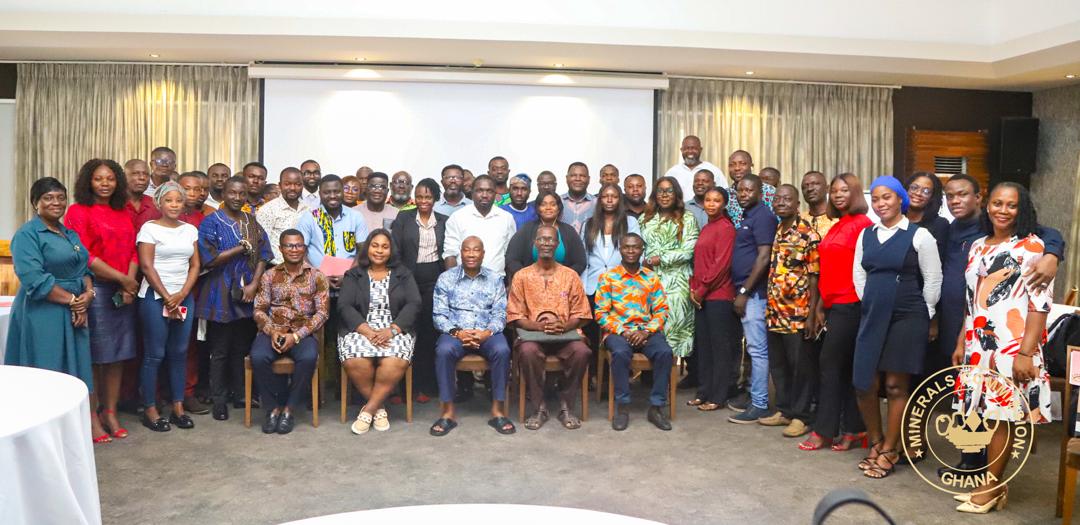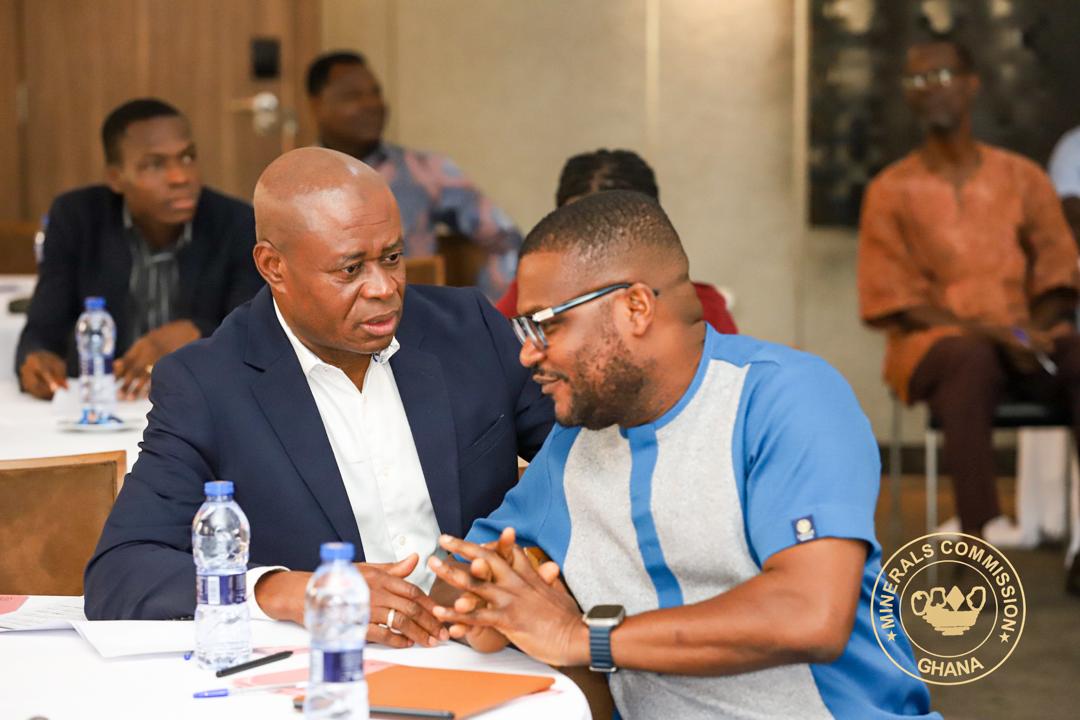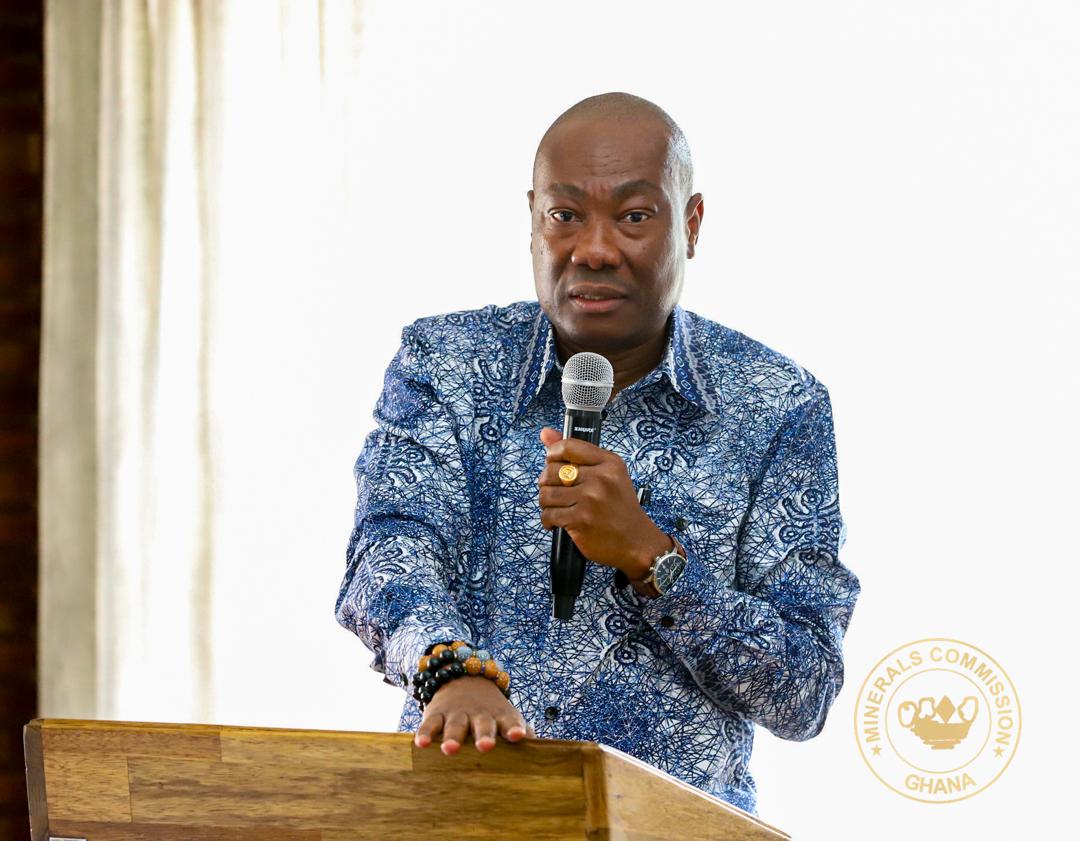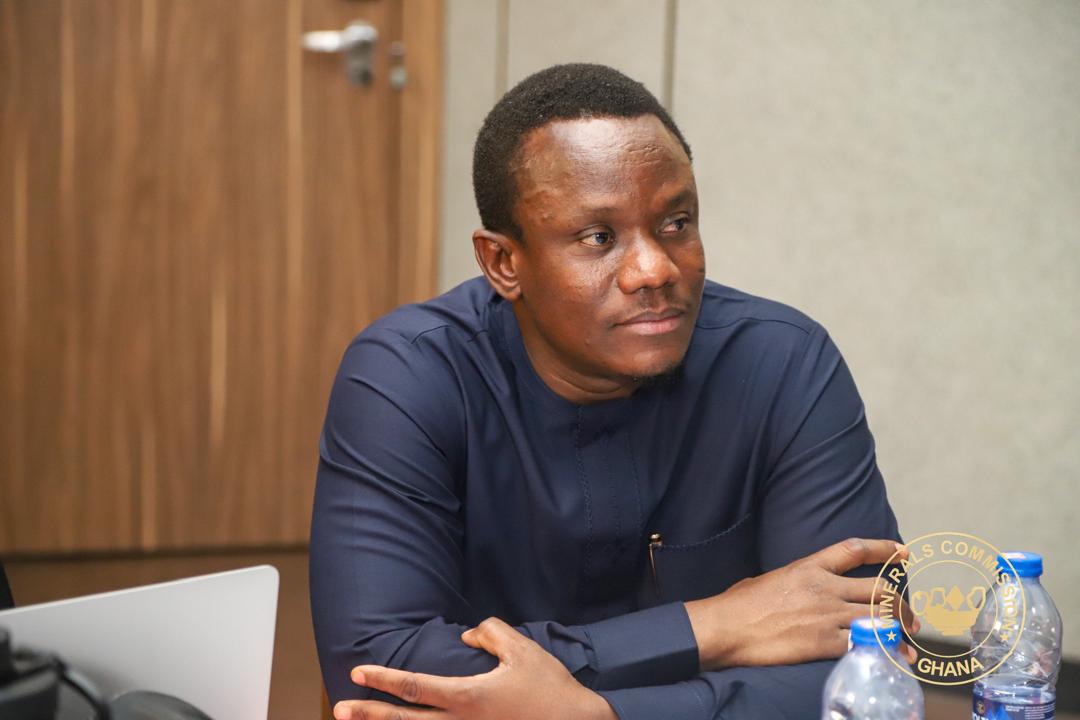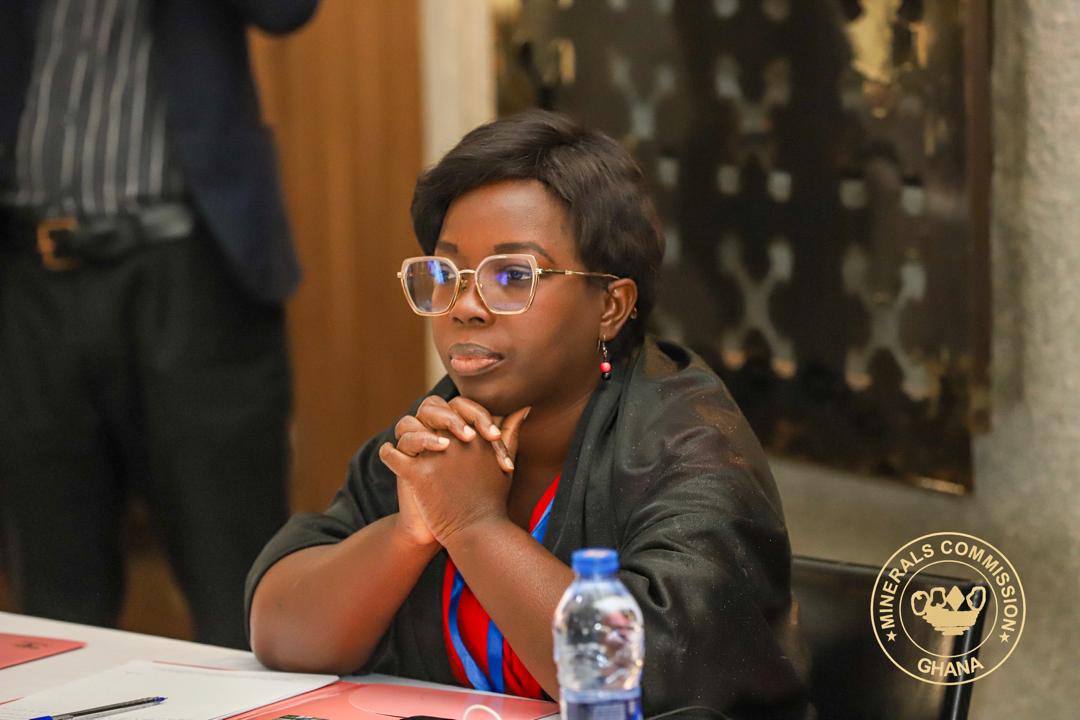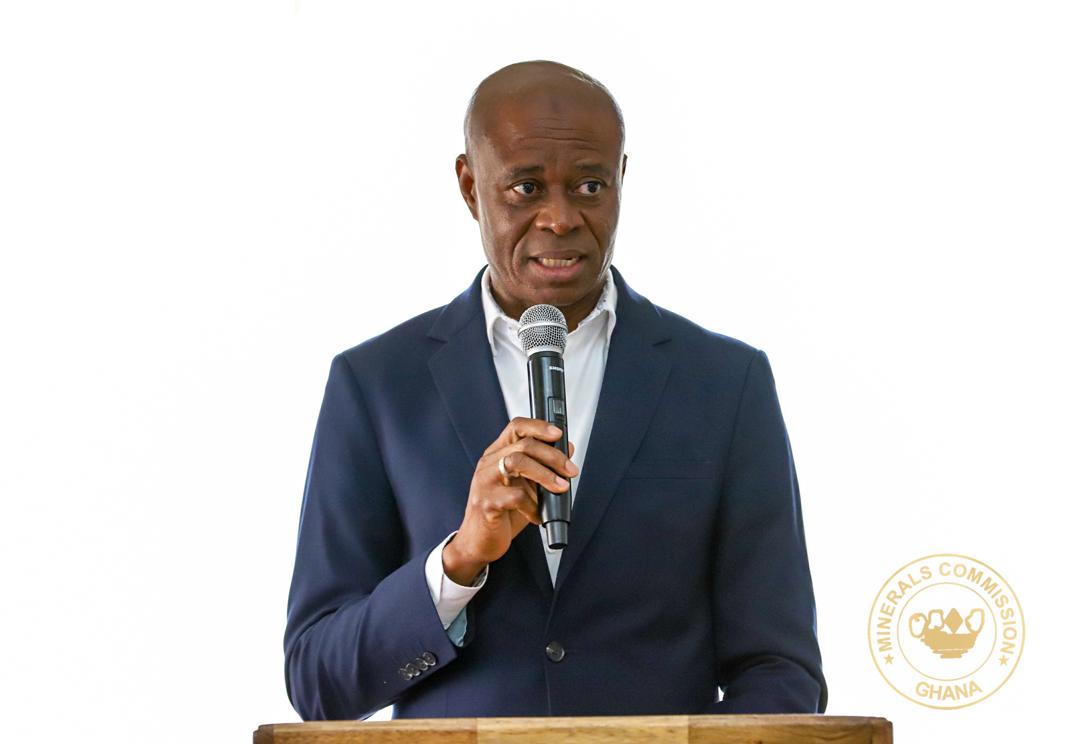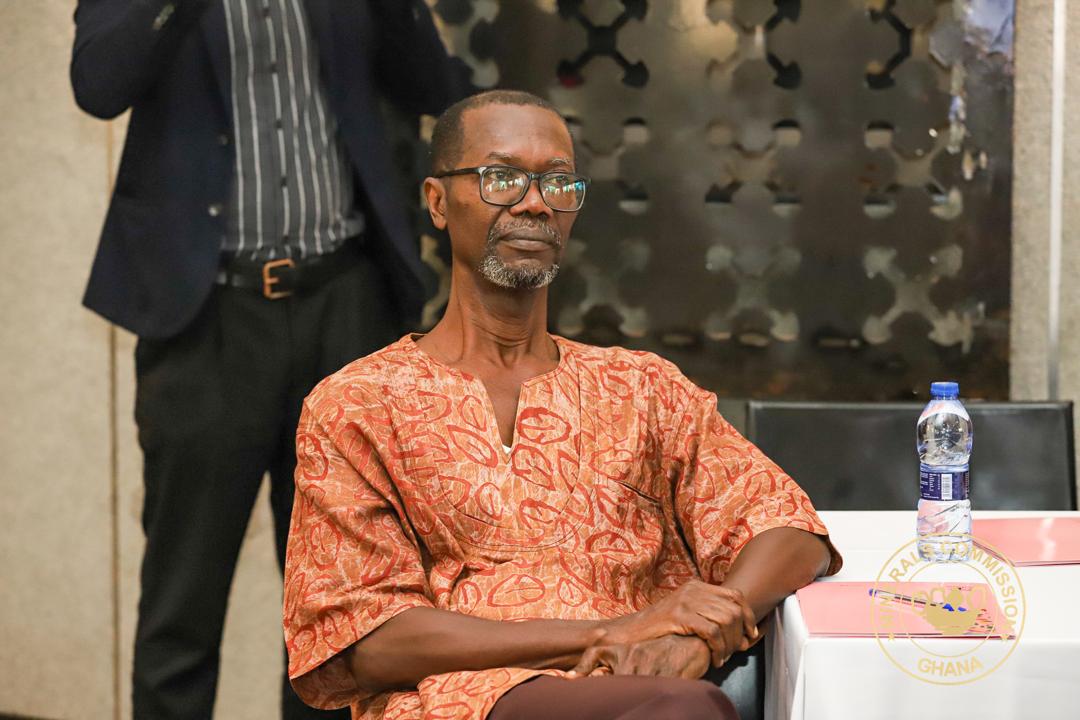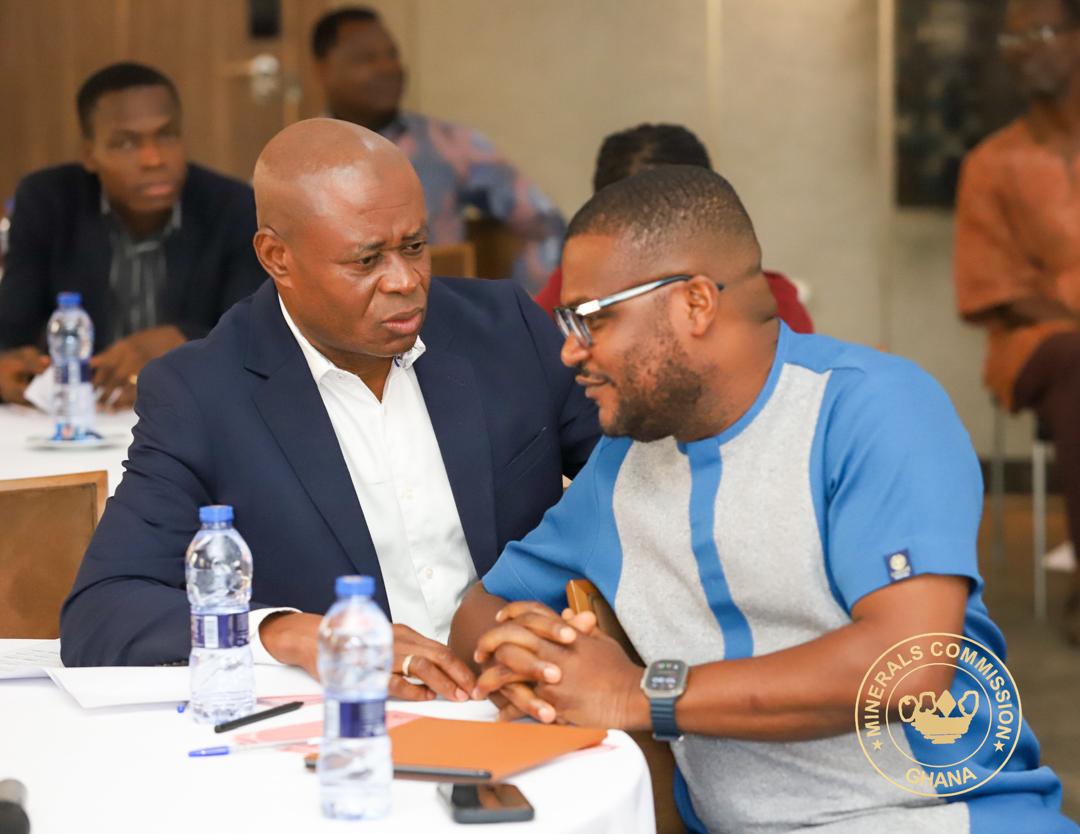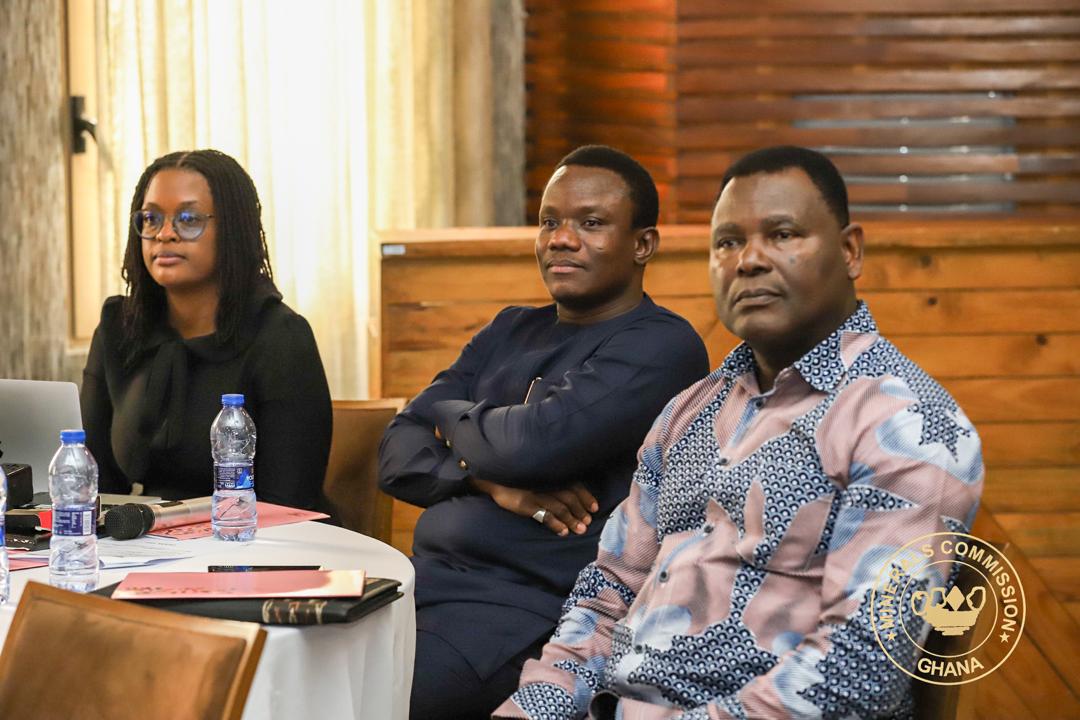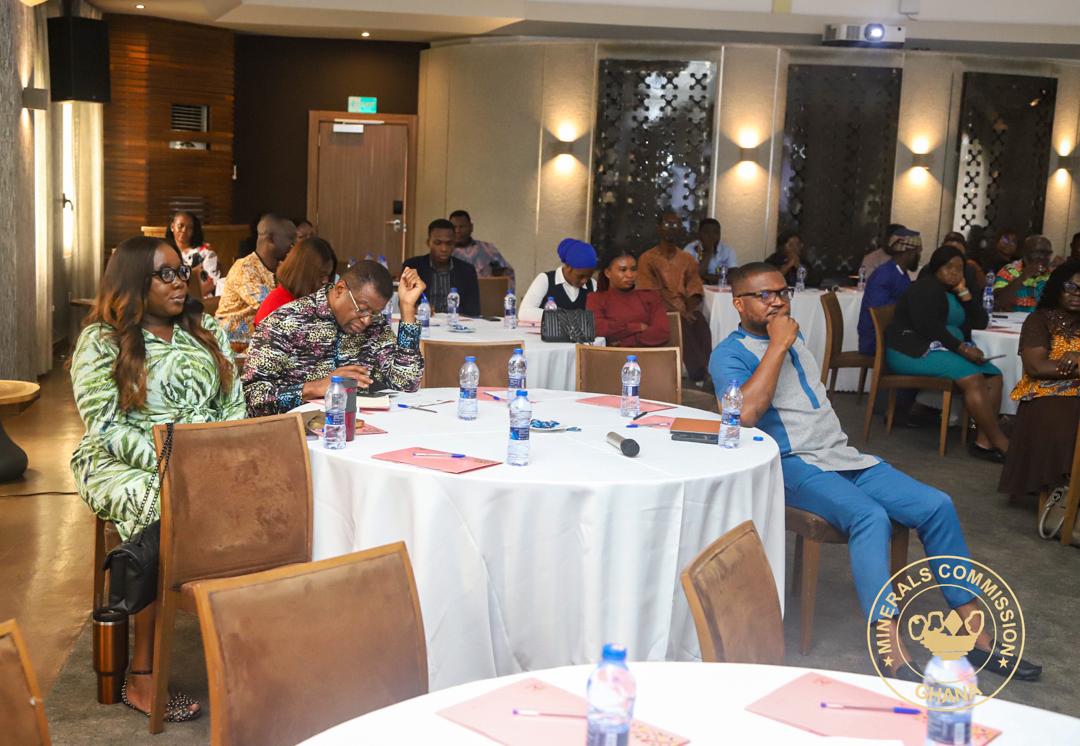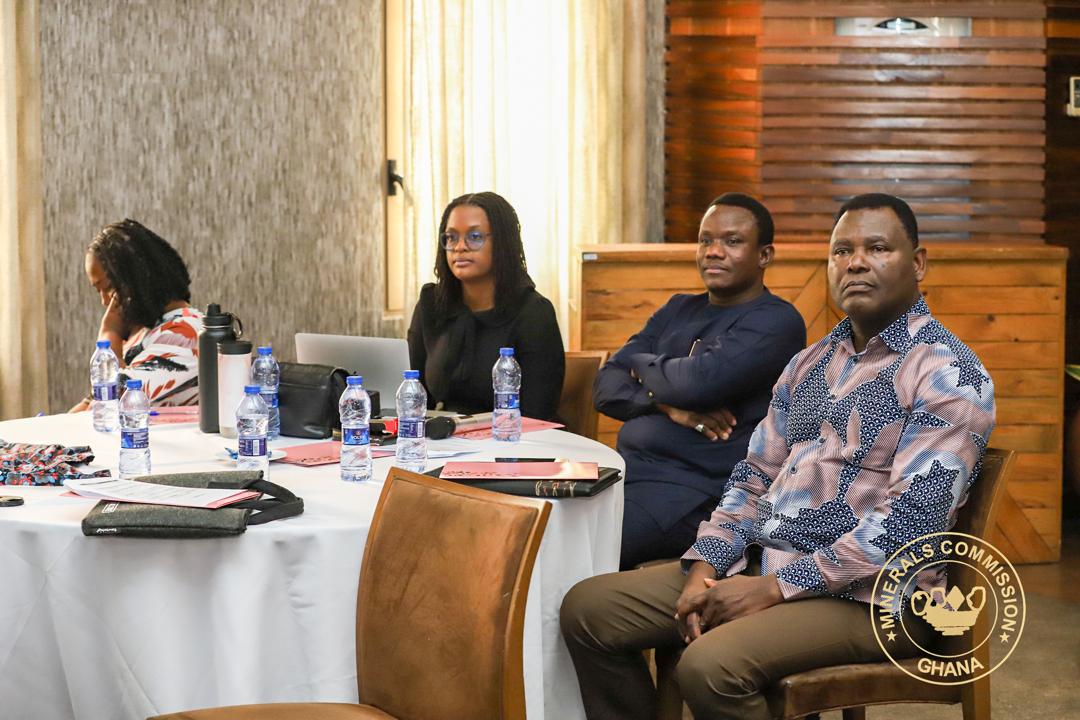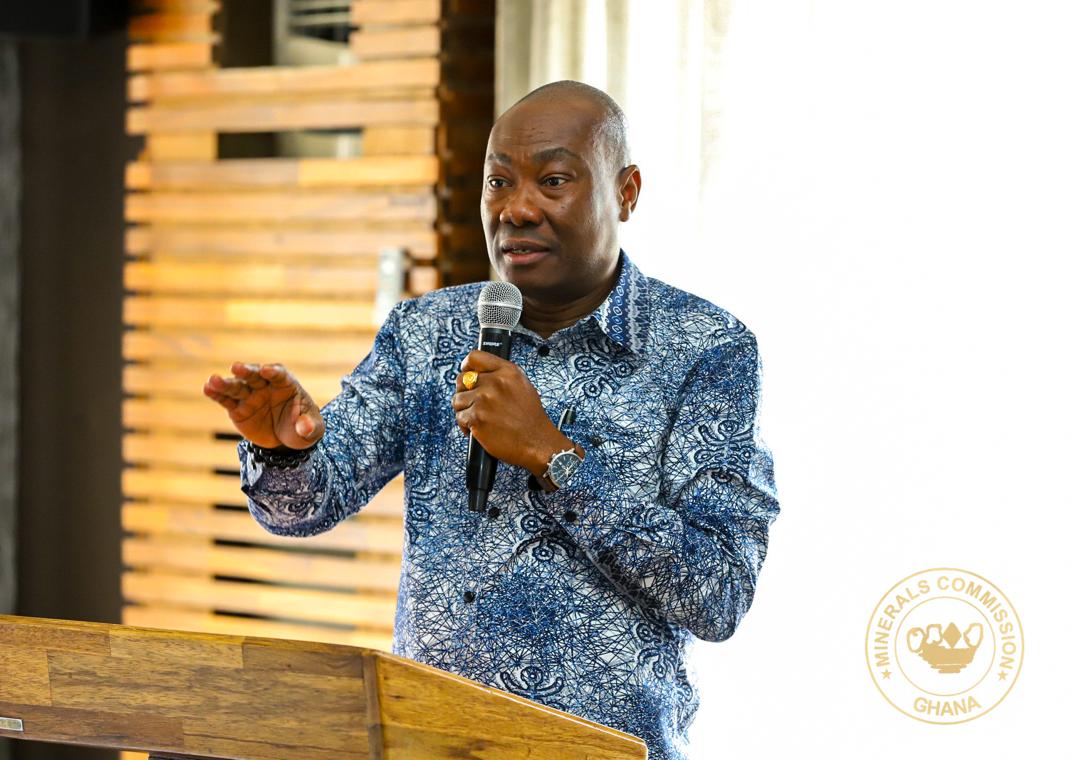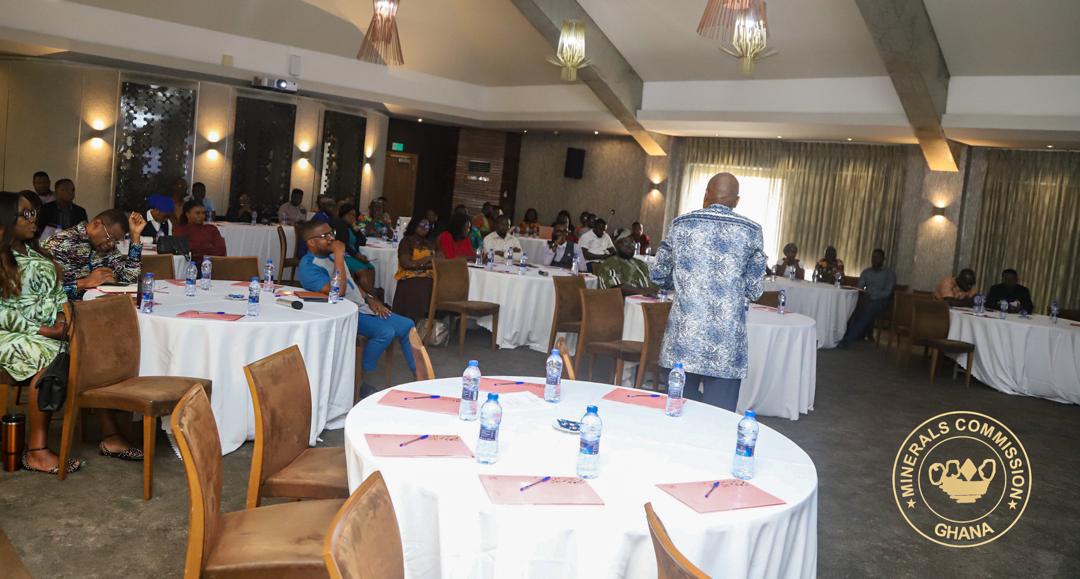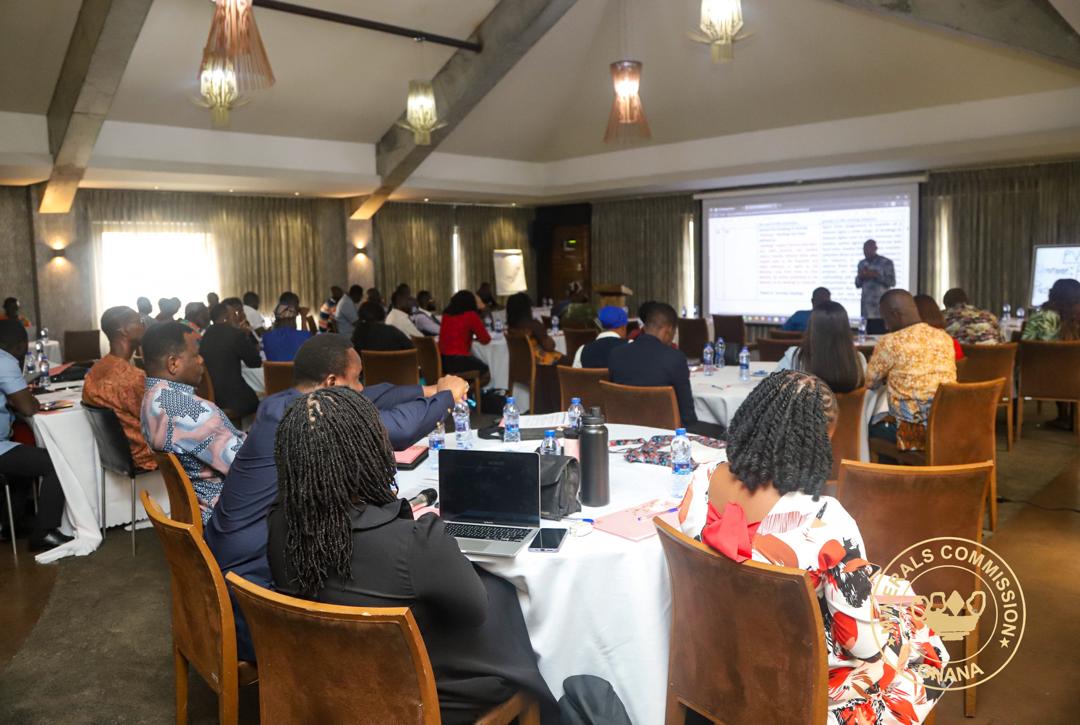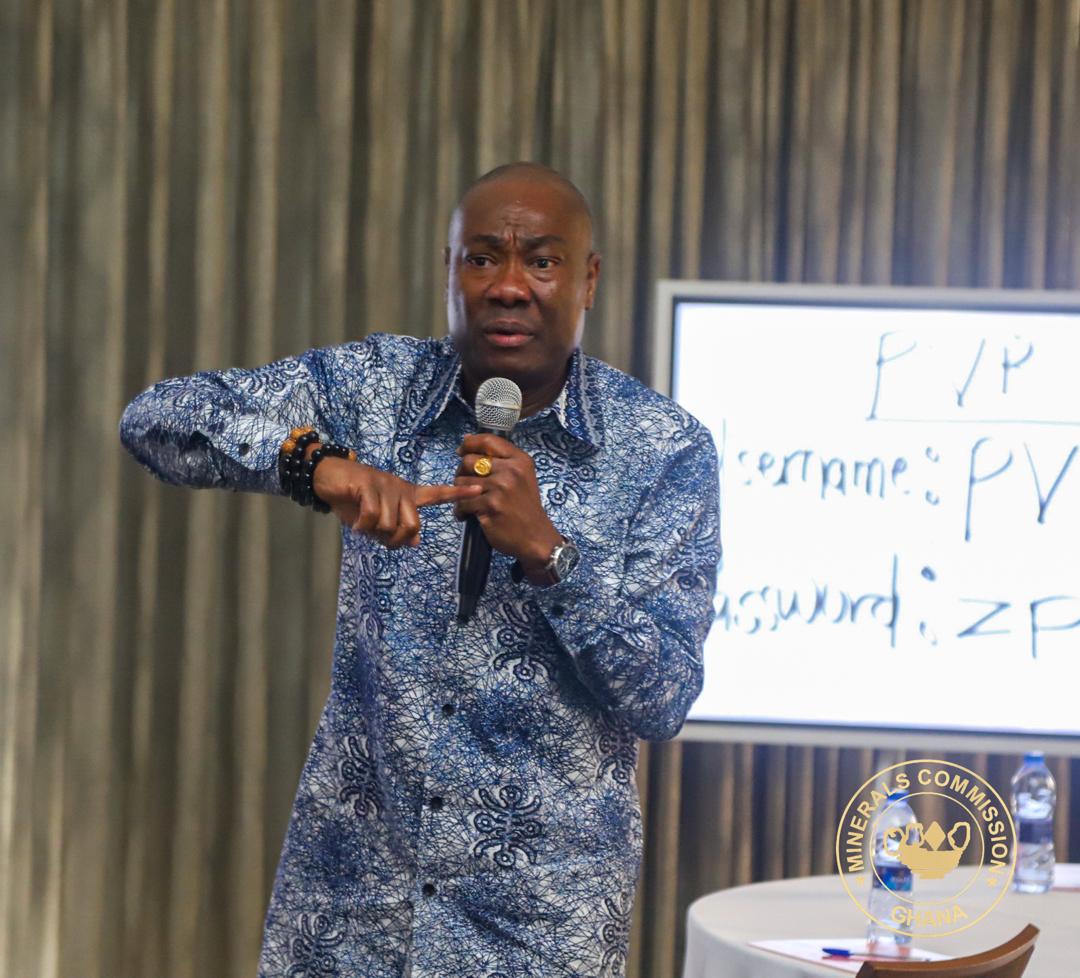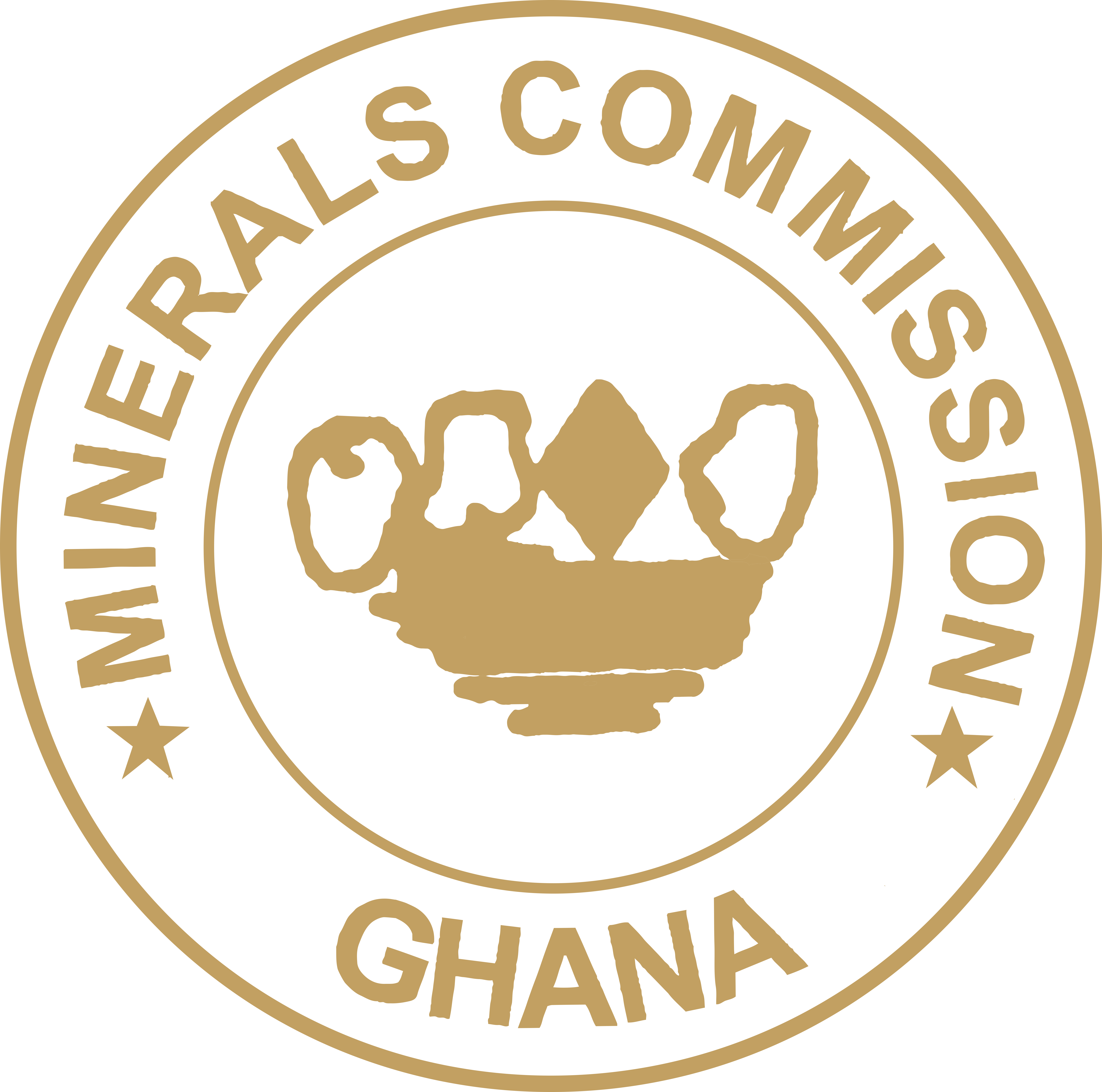Minerals Commission Pushes Bold Reforms to Ghana’s Mining Laws
The outing Chief Executive Officer of the Minerals Commission, Mr. Martin Ayisi, on Monday, September 1, 2025, engaged members of the Ghana Journalists Association (GJA) from the various regions in a spirited conversation about the government’s proposed amendment of the Minerals and Mining Act, 2006 (Act 703).
The discussion, which comes at a pivotal moment for Ghana’s extractive industry, outlined far-reaching reforms intended to modernize mining regulation, address long-standing inefficiencies, and ensure that communities derive greater benefits from the country’s mineral wealth.
In his keynote remarks, Mr. Ayisi was candid about the motivation behind the reforms. “The Minerals and Mining Act and its regulations have guided our industry for over thirteen years. But along the way, we have faced real implementation challenges. Change is not always about failure—it is also about positioning ourselves to achieve better outcomes,” he said.
He noted that advocacy from civil society organisations, think tanks, and the media had amplified concerns about the poor state of mining communities and the limited national gains despite Ghana’s mineral abundance. For him, the moment had come to “pivot strategically and overhaul the framework”.
The Commission’s boss stressed that Ghana’s mining policies cannot be divorced from wider regional and global realities. He urged caution against oversimplified comparisons with other jurisdictions. “When critics cite Burkina Faso or elsewhere, we must ask: what are their standards? In Ghana, for example, we insist on certified mine managers—a basic requirement that may not apply in other countries. We must avoid a race to the bottom,” he explained.
He also warned that insecurity in neighboring states often spills across borders, reinforcing the need for Ghana’s policies to reflect both domestic priorities and regional dynamics.
Mr. Ayisi took the journalists through key reforms at the heart of the amendment bill, including:
1. Abolition of Development Agreements (DAs) – These special agreements, which shielded companies from certain taxes and levies, will be scrapped. According to him, they prevented the state from benefiting during record commodity booms such as the current $3,000/oz gold price era. “The asymmetry is unacceptable” he said, recalling how stabilisation clauses blocked Ghana’s attempts to capture windfall profits.
2. Shorter Mining Leases – Lease durations will be cut from 30 years to a maximum of 15 years, reflecting the reality that most mines exhaust in under a decade. “30 years leases are excessive and out of step with economic and geological data” he argued.
3. Overhaul of Stabilisation Clauses – Broad investor protections will be abolished, though limited stability clauses may still apply to large-scale, capital-intensive projects such as refineries or major infrastructure.
4. Capping Prospecting Licences – Ghana will end indefinite licence renewals that encourage land hoarding. New limits, likely between 7–9 years, will align the country with global best practices.
5. Mandatory Community Development Agreements (CDAs) – For the first time, companies will be legally required to commit a percentage of revenue—not profit—to host communities. Mr. Ayisi illustrated this with a striking example: “If Newmont Ahafo had committed just 1% of last year’s $1.8 billion revenue, $18 million would have gone directly into local development.”
6. Parliamentary Oversight – He also reaffirmed Ghana’s unique stance of subjecting mining lease cancellations to parliamentary ratification, a safeguard that underscores transparency.
Beyond technical reforms, Mr. Ayisi stressed that the new Act will deliberately mainstream gender considerations and open doors for persons with disabilities to participate meaningfully in mining. “This industry must not only be profitable; it must be inclusive and socially just” he declared.
Adding further depth, Mr. Benjamin Aryee, former CEO of the Commission and Advisor to the Minister, presented a review of the 2014 Mining Policy. His remarks tied the proposed reforms to larger global shifts.
He underscored the importance of Ghana’s Green and Critical Minerals Policy, which aligns the country with surging global demand for transition minerals like lithium. He also emphasized the growing influence of ESG (Environment, Social, and Governance) standards, the impacts of climate change, and the government’s moves to create a new medium-scale mining category alongside cooperative mining initiatives.
“Global trends demand nothing short of a paradigm shift” Mr. Aryee said. He further added “Climate change, the race for critical minerals, and lessons from a decade of implementation compel us to rethink how Ghana manages its mineral endowment”.
Together, the presentations painted a picture of a bold, forward-looking mining sector one that seeks not just foreign investment but also fairness, accountability, and sustainability.
For Ghana, a country long dependent on gold, bauxite, manganese, and more recently, green minerals, the proposed amendments could mark the most significant regulatory shake-up in nearly two decades.
And if the words of Mr. Ayisi and Mr. Aryee are anything to go by, the reforms are not just about fixing old problems. They are about preparing Ghana’s mining sector for the next era of opportunity, one rooted in resilience, inclusivity, and sustainable national growth.
The President of the Ghana Journalists Association (GJA), Mr. Albert Kwabena Dwumfuor on his part, stressed that responsible regulation is the only way to safeguard communities and protect the nation’s resources.
Speaking at the stakeholder engagement with the Minerals Commission on the proposed amendment of the Minerals and Mining Act, the GJA President commended the Commission’s outgoing Chief Executive Officer, Mr. Martin Ayisi, for his commitment to transforming the industry.
The GJA President recalled that last year he had submitted a report to the Presidency highlighting the urgent need for reforms in the sector. He noted that illegal mining, popularly known as galamsey, has become nothing short of a national emergency, wreaking havoc on water bodies, destroying farmlands, and threatening livelihoods.
The Association, he said, sees its role not just as observers but as partners in ensuring accountability. By informing and educating the public, journalists can help citizens understand the implications of mining reforms and push for their full enforcement.
While acknowledging that reforms may have come later than expected, the GJA President stressed that “it is never too late to make the right changes.” He called for consistency, transparency, and active involvement of all stakeholders, including civil society and local communities, in shaping Ghana’s mining future.
The GJA, he assured, will continue to use its platforms to keep the national conversation alive, track progress, and ensure that Ghana’s mineral wealth benefits the wider population rather than a privileged few.
END.
